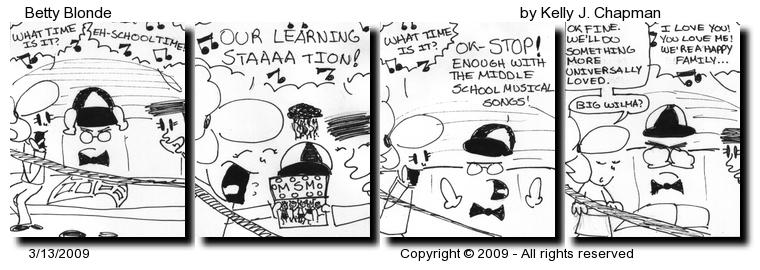The kids made the transition from homeschool to community college four years ago, then on to big state university two years after that. We are now engaged in an on-going conversation about the differences between their undergraduate work and the work they have been given in their first year of graduate school. We are slowly arriving at the conclusion that the types of focus and goals of their graduate school work is much more similar to their homeschool experience than to their undergraduate school experience.
It seems like the goal of the community college and big state U is to give a common set of instructions and work requirements to all the students with grades as a way to determine whether any of it stuck. It is easy to understand why it is done that way. Almost everyone who gets an undergraduate degree has a common core of material they have to learn, then within disciplines there is another big chunk of classes all the students have to take, so it would be nigh unto impossible to deliver those classes in any other way in a traditional college/university setting.
The difference between that and homeschool/grad school is that there are usually one or two individuals ready, willing, and even desirous to tailor the materials for each individual student to a specific end. In the case of the grad students it is his major professor. For the homeschool student it is the parents. Both of the kids were given difficult preliminary research tasks and a handful of classes for their first semester. Their classes are more focused on getting concepts and materials to them so they can perform their research tasks. Grades are a part of it, but really, the thing on which everyone is focused is to achieve a level of understanding that will allow them to perform their research; i.e., learning.
Just like grad school, learning rather than grades is the primary goal almost all homeschool programs. That is the way it should be. Technology is changing the way undergraduate education is delivered. In virtually every case, the most effective tools are the ones that promote learning and close the feedback loop for error correction rather than just prepare a student to regurgitate facts or memorize processes for solving chemistry and math problems.
Betty Blonde #172 – 03/13/2009

Click here or on the image to see full size strip.
